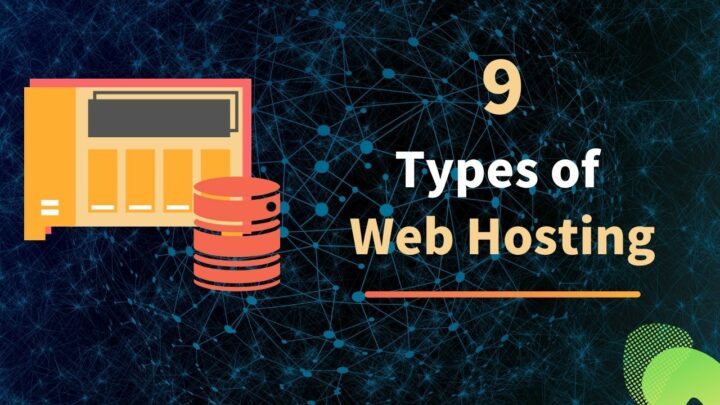Amazon Web Services is currently one of the most popular cloud providers in the world. It holds more than 30% of the market share. There is no doubt that AWS has literally changed the landscape of the web.
Although AWS is primarily an infrastructure-as-a-service provider, it offers other types of services as well. For instance, function as a service (AWS Lambda), managed databases, and so on.
- Being such a humongous platform, AWS offers more than 200 services. But that can be a disadvantage as well, which makes you to look for alternatives.
Maybe you are just looking for a simple cloud VPS machine to host your application. You may not need all the other services like Lambda and managed databases. Learning to properly use the AWS infrastructure is not a simple task either. That's why there are certifications available for just being an AWS expert.
Unexpected bills are another disadvantage. With large cloud providers like Amazon, you get billed not only for bandwidth and storage but also for API requests, ingress, and egress requests. So, if you are not keeping a close watch on your usage, the bills can go through the roof.
There are other providers who offer simpler and more straightforward pricing.
So in this post, we will look at both enterprise-level cloud providers that are direct competitors to AWS as well as smaller ones that are much easier to use.
In case you are not sure what cloud infrastructure providers are, here is a quick brush-up.
What are Cloud Iaas Providers
In its simplest form, a cloud company provides you with virtualized machines (VPS) where you can run your applications.
- But what are virtualized machines or cloud VPS?
Unlike a traditional VPS that splits a single physical machine into multiple virtual machines, cloud machines make use of multiple machines. It pools the resources from multiple physical servers and then uses a hypervisor to virtualize it and create cloud VPS servers.
So when you buy a virtual machine, it does not depend on a single physical server, which ensures better reliability.
For the same reason, it is also quite easy to scale up or down. You can increase or decrease the RAM size storage capacity and even the CPU power within seconds.
Owing to the ability to instantly provision and scale servers, cloud services are often available under pay-as-you-go pricing. You get billed only for the number of hours you use a service instead of paying for a full month or a year. In short, you only get billed for what you use.
How They Differ from Web Hosting Providers
On traditional hosting, you need to change the plan to upgrade the server. Instantaneous scaling is not possible.
Also, traditional hosting requires you to log in for monthly or yearly billing cycles. Even if you cancel the hosting plan halfway through a month, you still get billed for the whole month.
- See also: Cloud Hosting vs. Shared Hosting
With that let us start.
Top Cloud Providers
The number of services offered can vary greatly from one company to another But all of them have one thing in common: virtualized cloud machines.
On AWS, they call it EC2 Instance, which is short for Elastic Cloud Compute. The name can be different for other cloud providers, but the idea is the same. In this article, we are looking at virtual machines from a web hosting point of view.
We will not be looking at other services like databases, object storage, etc.
1. DigitalOcean
Looking at the product section, one thing is clear. DigitalOcean does not offer as many services as AWS. The list of featured products includes droplets, Kubernetes, APP platform, databases, and spaces.
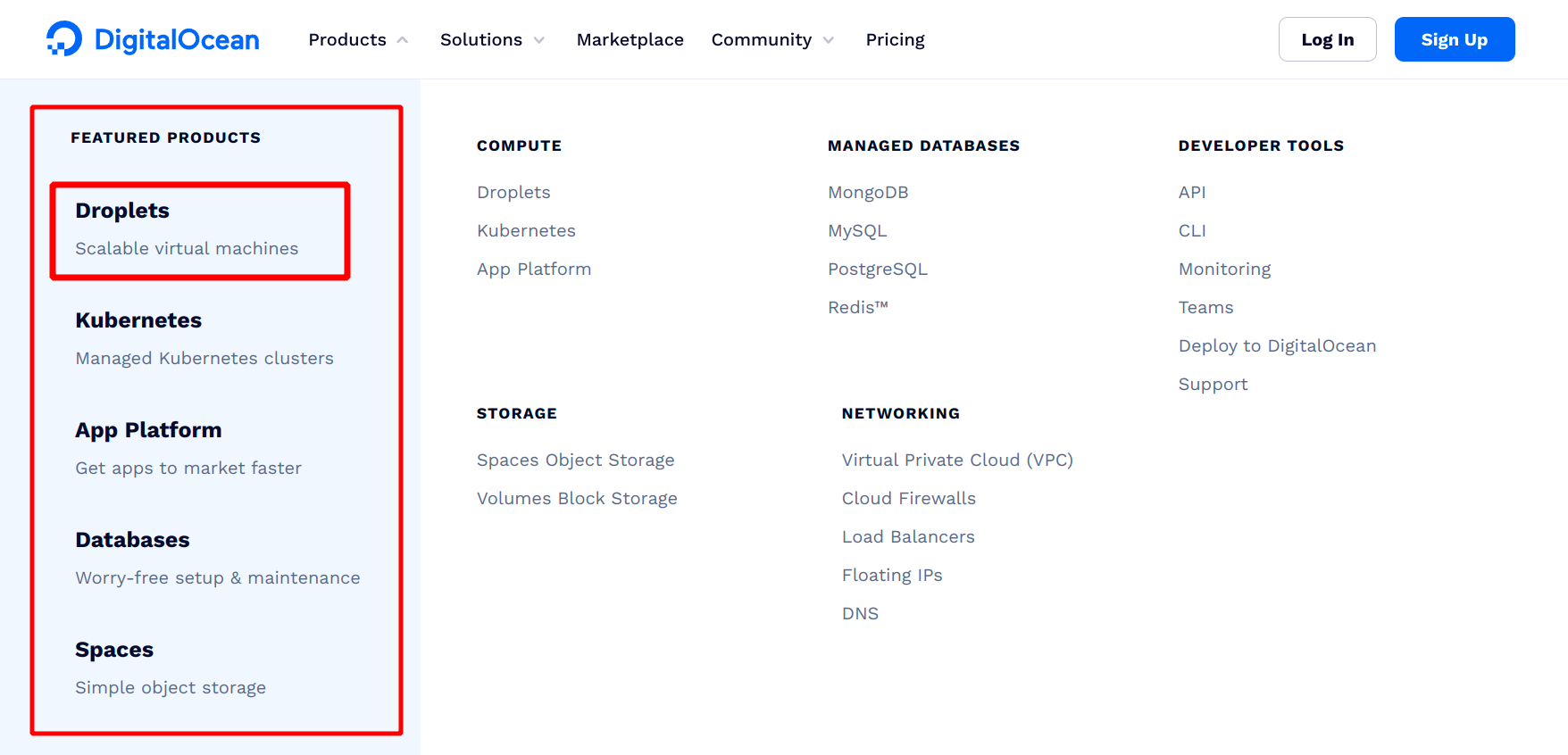
Out of these, Droplets is the equivalent of EC2. There are five categories of Droplets:
- Basic: 18 plans in total, choose between Intel premium, AMD Premium, or
Regular CPU. Price starts at $5/month for 1GB/1vcpu Regular droplet. - General purpose: A total of six plans ranging from 8GB memory to 160GB.
- CPU-optimised: Optimised for CPU-intensive tasks, 10 plans in total ranging from 4GB/2vcpu to 64GB/32vcpu
- Memory-optimised: Optimised for high memory tasks, 18 plans in total, 16GB/2vcpu to 256GB/32vcpu
- Storage-optimised: Uses NVMe SSD storage, 12 plans in total ranging from 300GB to 7TB
Out of these, the Basic category comes with shared CPUs while all the other four offer dedicated CPUs.
Founded in 2011, and based in New York, DigitalOcean is listed on NYSE.
DigitalOcean offers its services in 8 locations and 13 data centers:
-
New York
-
San Francisco
-
Amsterdam
-
London
-
Frankfurt
-
Toronto
-
Singapore
-
Bangalore
Currently, it has no presence in the Middle East, Africa, Latin America, and Australia.
Now let us have a look at the advantages.
First is the pricing. DigitalOcean does not charge for the number of requests. So you can expect more predictable bills compared to enterprise-level providers like AWS.
The second advantage is the ease of use. The control panel feels less cluttered and easier to use when it comes to provisioning new servers and managing them.
These two advantages are true for the following providers as well.
2. Linode
Founded in 2003 and based in Philadelphia, Linode is a much older company compared to DigitalOcean. But despite having a longer experience, Linode has chosen to stay private instead of going public like DigitalOcean.
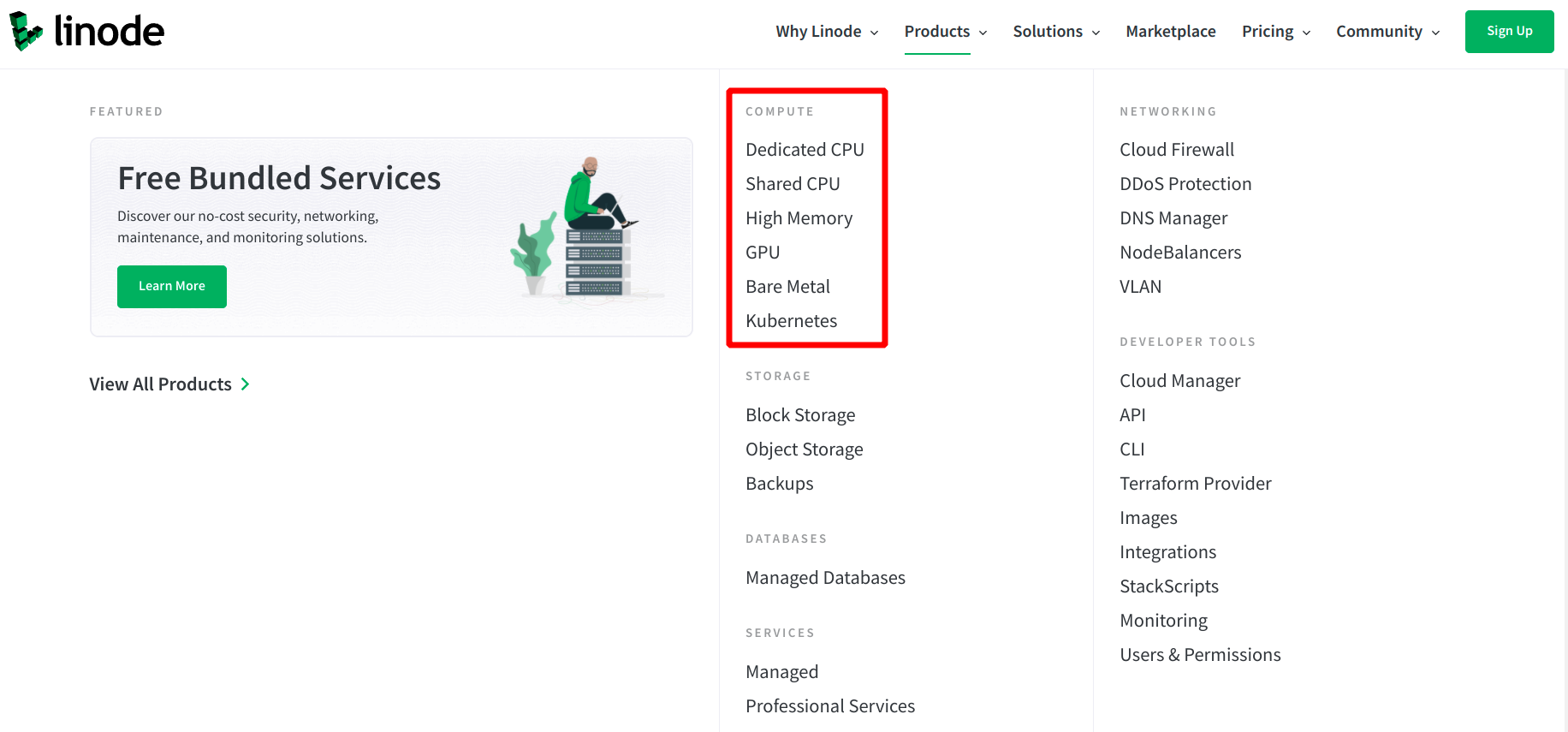
Both the companies are almost similar when it comes to the services and products offered. However, there are some crucial differences you should keep in mind.
First of all, Linode clearly mentions that it offers free DDoS protection with all its virtual machines. Second, they offer GPU Dedicated Instances, which can be highly helpful for machine learning and video processing applications. And third, Linode offers AMD Epyc processors with their instances.
- See also: DigitalOcean vs. Linode
Linode has 11 data center locations compared to 8 on DigitalOcean:
-
Dallas
-
Atlanta
-
Newark
-
Fremont
-
Toronto
-
London
-
Frankfurt
-
Mumbai
-
Singapore
-
Tokyo
-
Sydney
Now, let us have a detailed look at the plans. Linode offers four categories of virtual machines:
- Shared CPU: 10 plans in total, 1GB/1vcpu to 192GB/32vcpu
- High memory: 5 plans in total, 24GB to 300GB
- GPU plans: 4 plans in total, offers Nvidia RTX 6000 GPU, starts from 3GB/1GPU instance that costs $1000/mo all the way up to 128GB/4GPU instance that costs $4000/mo.
3. Vultr
Founded in 2014, Vultr is another medium-scale cloud computing company that offers compute instances, bare metal servers, and dedicated cloud servers.
They offer virtual machines under two categories: Compute and High Frequency (Vultr HF).
- Compute: There are a total of 10 plans starting from 0.5GB/1vcpu that costs $2.5/mo to 96GB/24vcpu that costs $640/mo.
- High Frequency: Offers high speed CPU and NVMe storage. Total of 9 plans ranging from 1GB/1vcpu that costs $6/mo to 48GB/12vcpu that costs $256/mo.
Vultr offers 22 data center locations: 10 in North America, 1 in South America, 7 in Europe, and 4 in the Asia-Pacific region.
-
Dallas
-
Chicago
-
Seattle
-
Los Angeles
-
Atlanta
-
Miami
-
Silicon Valley
-
Toronto
-
New Jersey
-
Mexico City
-
London
-
Frankfurt
-
Paris
-
Stockholm
-
Amsterdam
-
Warsaw
-
Madrid
-
São Paulo
-
Tokyo
-
Seoul
-
Singapore
-
Sydney
4. UpCloud
Founded in 2011, UpCloud is a Finnish company offering cloud computing and storage services.
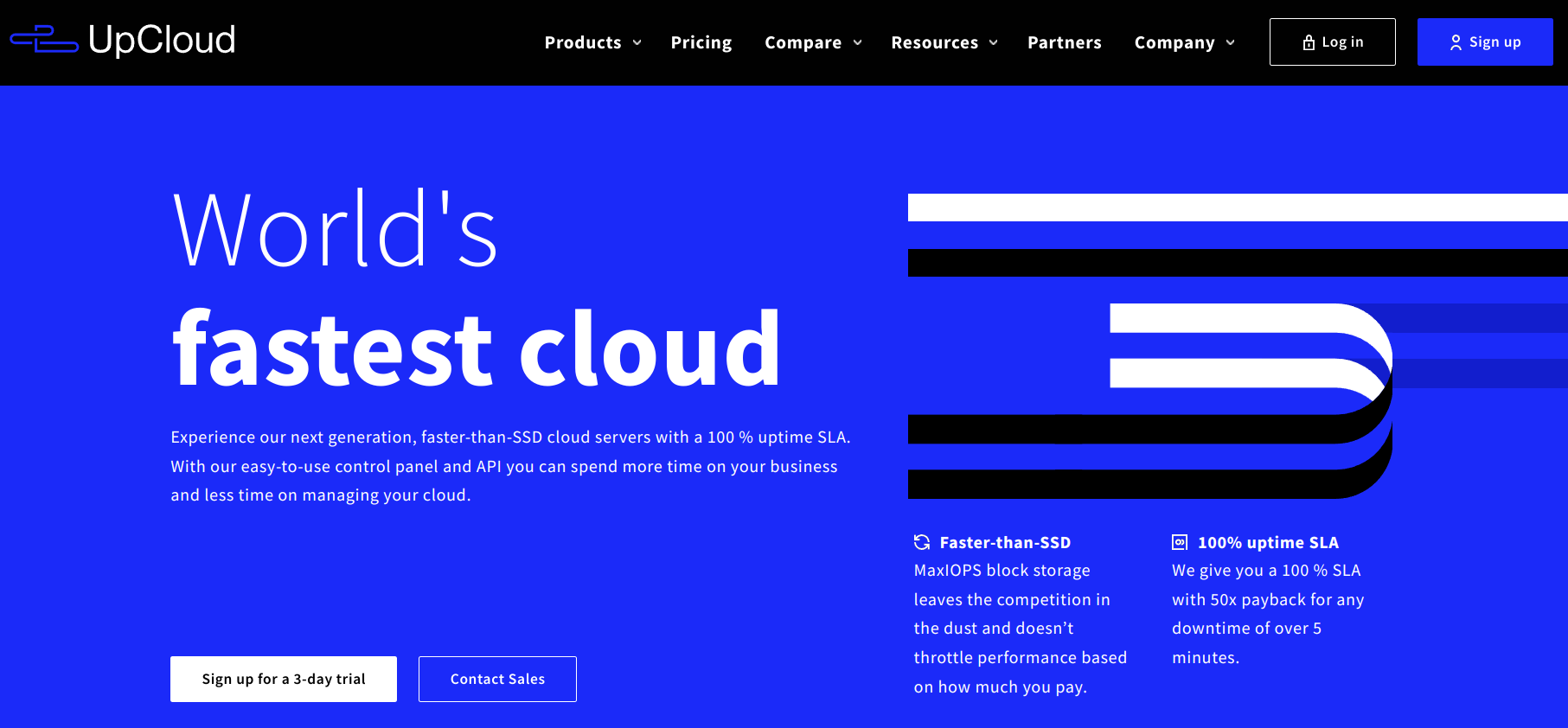
Simple and straightforward pricing is the highlight of UpCloud. They offer just 10 VM plans ranging from 1GB/1vcpu that cost $5/month to 128GB/20vcpu that costs $640/month.
UpCloud has 11 data centers: three in the USA, six in Europe, and one each in Singapore and Australia.
5. Google Cloud Platform
Launched in 2008, Google Cloud Platform holds 9% of the market share, standing at the third position behind AWS and Microsoft Azure.
Google Cloud offers four families of virtual machines:
- General-purpose
- Compute-optimized
- Memory-optimized
- Accelerator-optimized
- Shared-core machine types
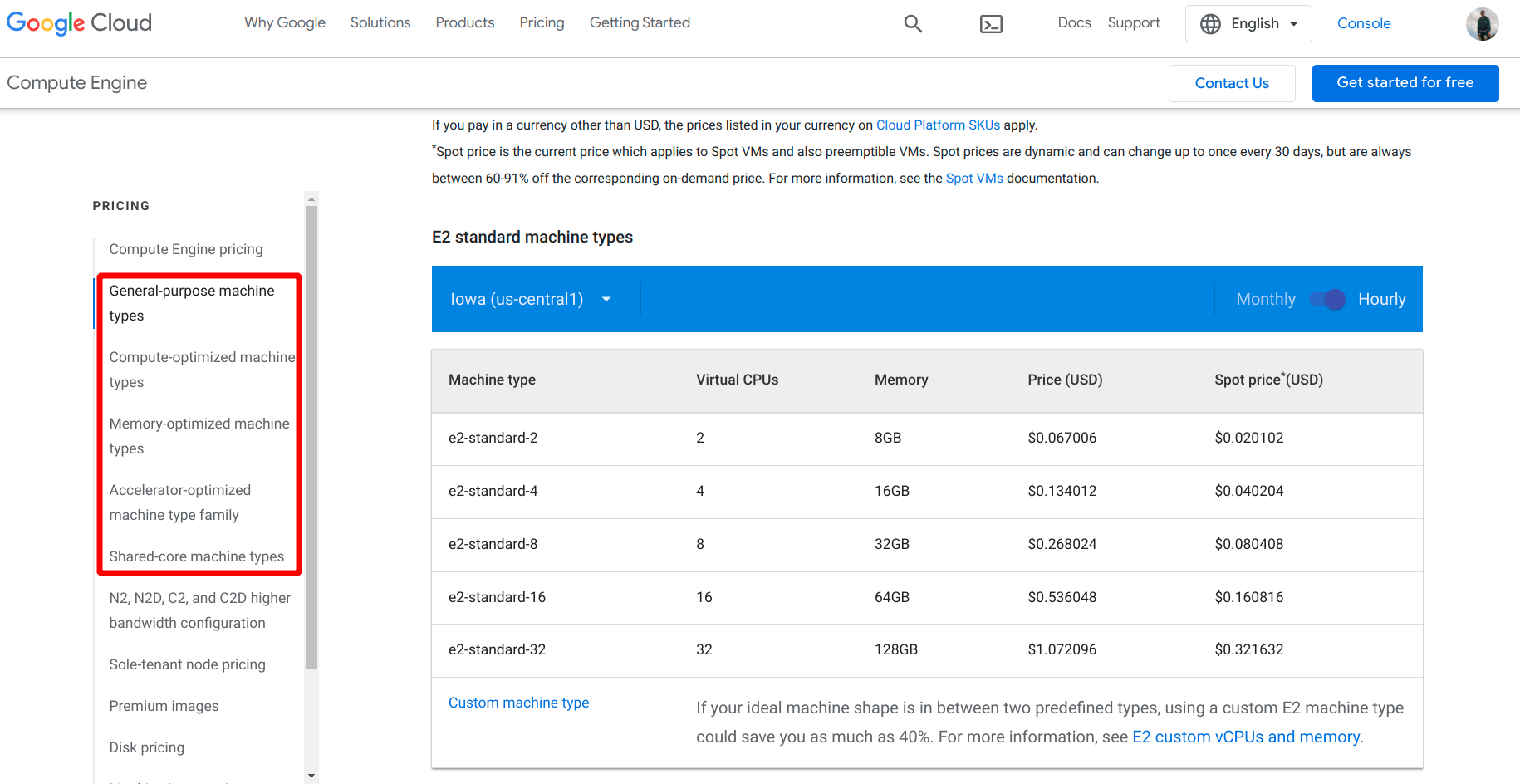
And within each family, you can find multiple series, for instance, the General-purpose family contains 5 series of instances namely E2, N1, N2, N2D, and T2D.
Again, within each series, you can find multiple machine types such as e2-micro, e2-standard, e2-highmemory, etc.
The smallest of all is the E2-micro instance, which comes with 1GB of RAM and 2vCPU and costs $6.12/month. A month is calculated as 730 hours.
The pricing can be quite confusing for someone looking at it for the first time. Because Google Cloud offers multiple pricing strategies:
- On-demand pricing
- Spot pricing
- 1-year commitment
- 3-year commitment
If you are coming from AWS or Azure (given below), then these things might look familiar. Otherwise understanding the difference between spot pricing and on-demand pricing can be daunting. Spot pricing offers the cheapest rates but it is useful only for non-critical workloads like background jobs because it allocates unused virtual machines.
If you are looking for pay-as-you-go pricing, then what you need is on-demand instances. And in between, you can find 1-year and 3-year commitment plans, which offer more savings compared to on-demand instances.
Currently, Google Cloud is available in 29 regions.
6. Microsoft Azure
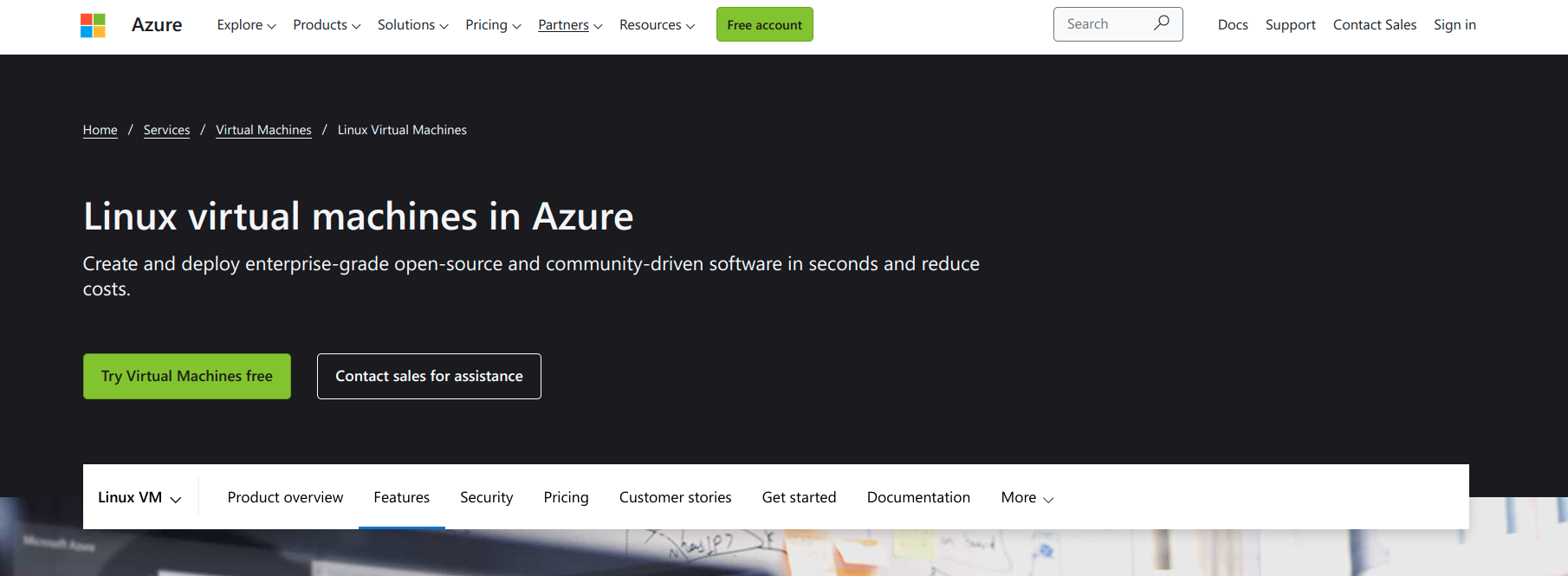
Microsoft Azure is another strong competitor to both Amazon Web Services and Google Cloud Platform. Despite slight differences, the products and services offered by all the three services are mostly the same. It is difficult to say which one is the best.
Azure offers six categories of virtual machines:
- General purpose
- Compute optimized
- Memory optimized
- Storage optimized
- GPU
- High performance compute
Standing behind AWS, Microsoft Azure also has its presence in 50+ locations worldwide.
7. IBM Cloud
IBM is one of the oldest technology companies in the world. In 2013, they acquired SoftLayer and started offering cloud services under the brand Bluemix. And later in 2017, they branded it to IBM cloud.
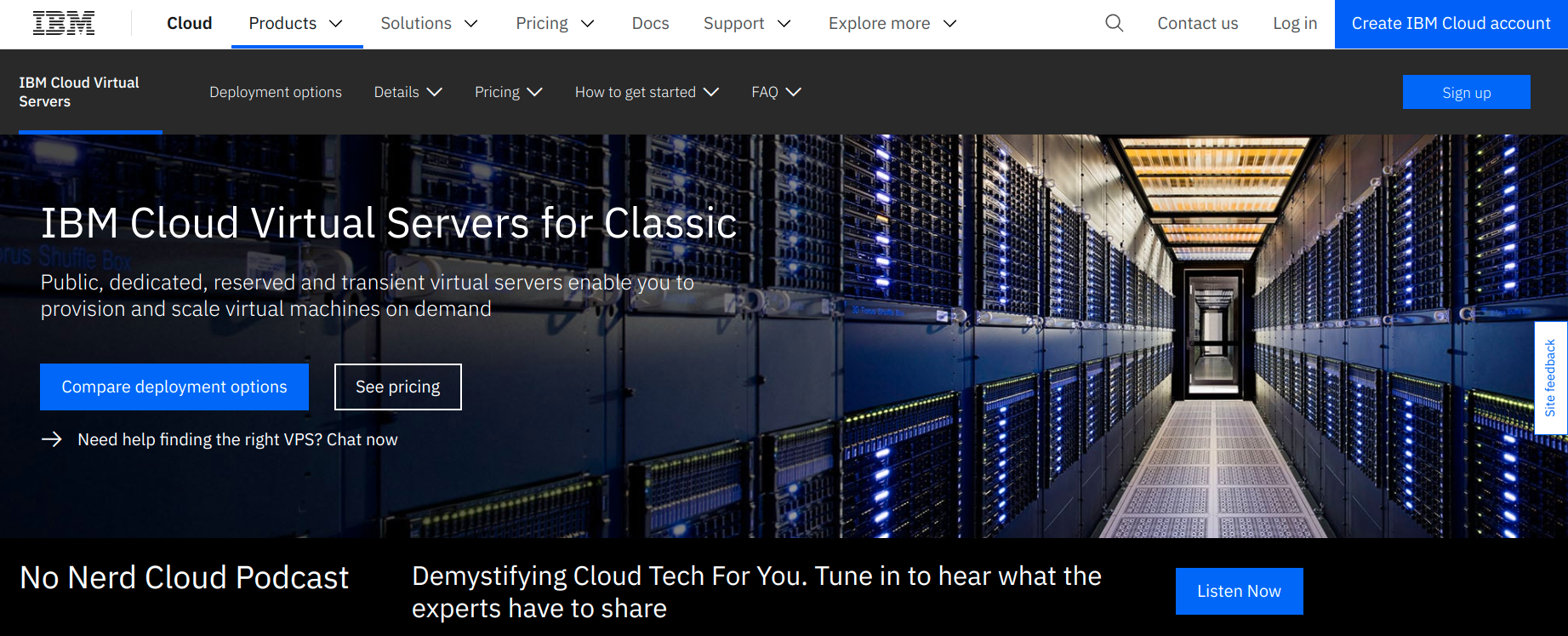
According to a recent statistic, IBM cloud stands at 5th position among cloud providers with a 5% market share.
Coming to cloud computing, IBM cloud offers five families of virtual machines:
- Variable compute
- Balanced compute
- Balanced localstorage
- Compute
- Memory
IBM has 60 data centers spread across different locations such as North America, South America, Europe, and Asia-Pacific.
8. Alibaba Cloud
Founded in 2009, Alibaba Cloud is another cloud provider whose parent company is Alibaba Group, a Chinese multinational company.
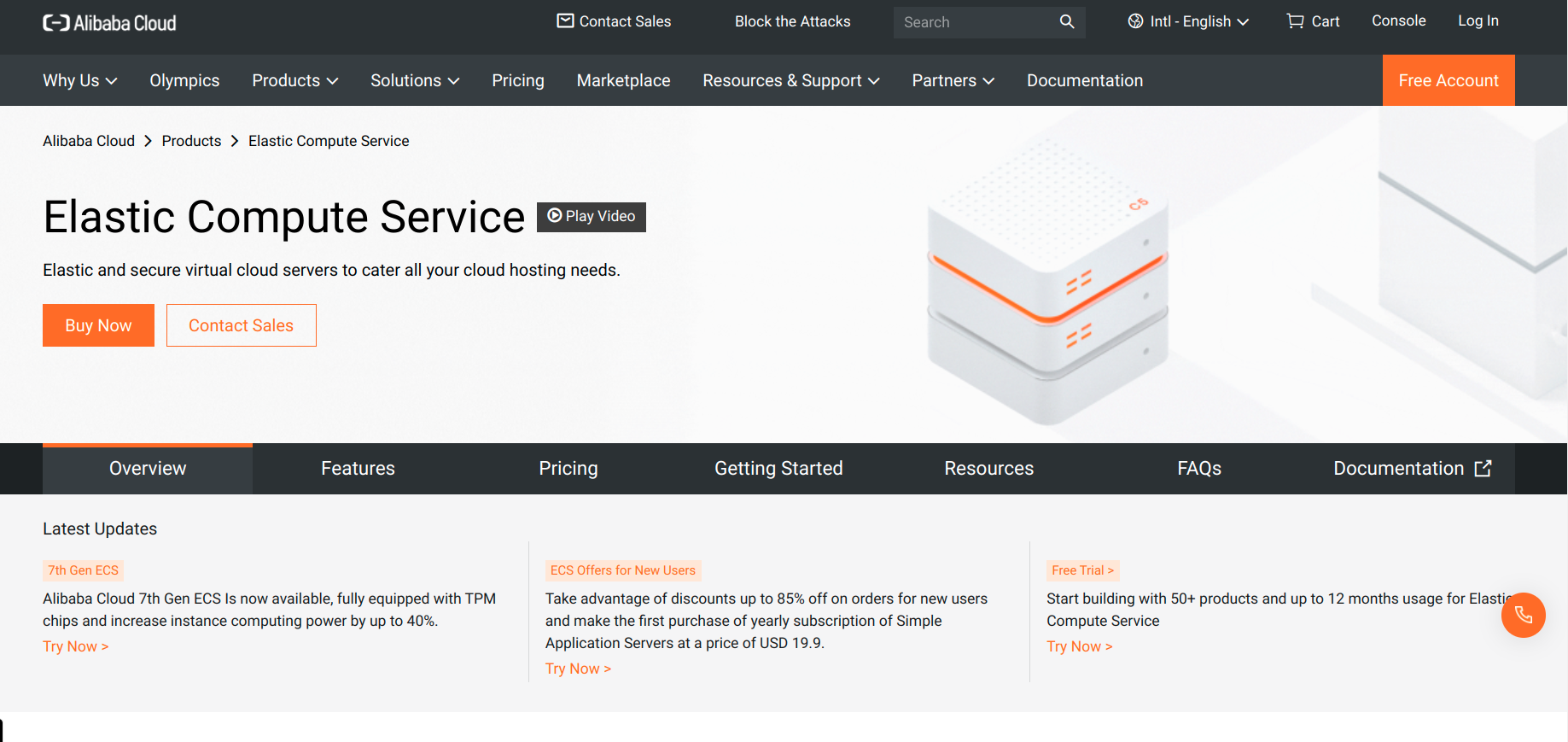
Although it is Chinese, Alibaba Cloud has a presence all over the world. AWS might have better location choices overall, but Alibaba has more locations in the Asian region.
Currently, there are a total of 25 data center locations for you to choose from, which includes twenty in Asia-Pacific (including in India and China), two in the USA, two in Europe, and one in the Middle East (Dubai).
Equivalent to Amazon EC2, Alibaba offers VPS machines called Elastic Compute Service (ECS). There are nearly 300 instance types to choose from, which is on par with other cloud providers.
9. Oracle Cloud
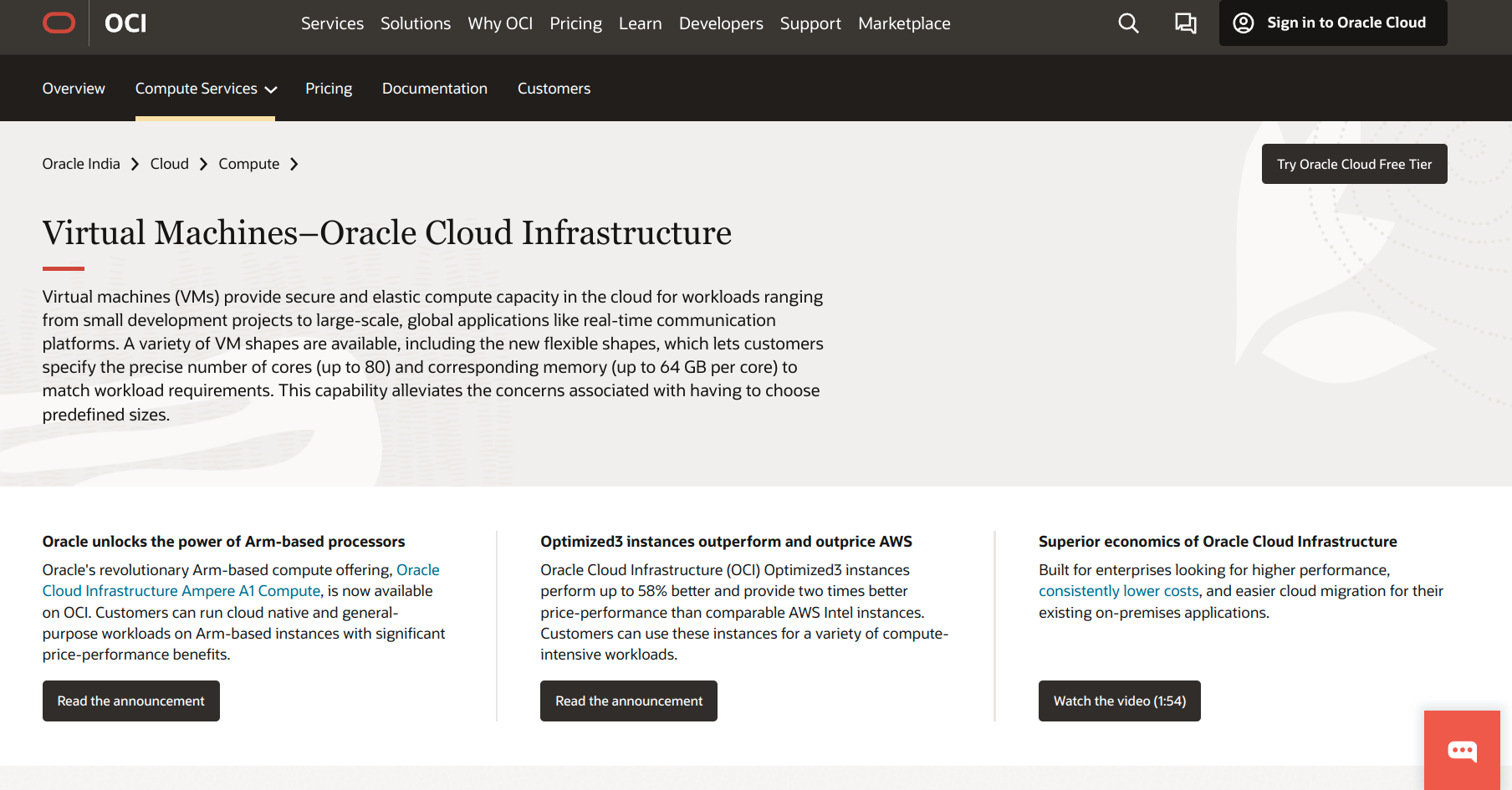
Founded in 1977 in California, Oracle is a veteran in the software industry. The company is best known for its database management system - Oracle Database.
Cloud Computing is just another service that the company is offering. As a part of that, they are offering virtual machines, GPU instances, bare metal servers, along with other services like serverless functions and Kubernetes. Oracle has its presence in 30+ locations worldwide.
Similar to the different instance families offered by Google Cloud and others, Oracle also offers different Compute Shapes:
- Dense
- Flexible
- GPU
- HPC
- Optimized
- Standard
Out of these, the Flexible category allows you to select custom RAM size and number of OCPU (Oracle CPU).
10. OVHcloud
OVHcloud is a French cloud provider and web hosting company founded in 1999.
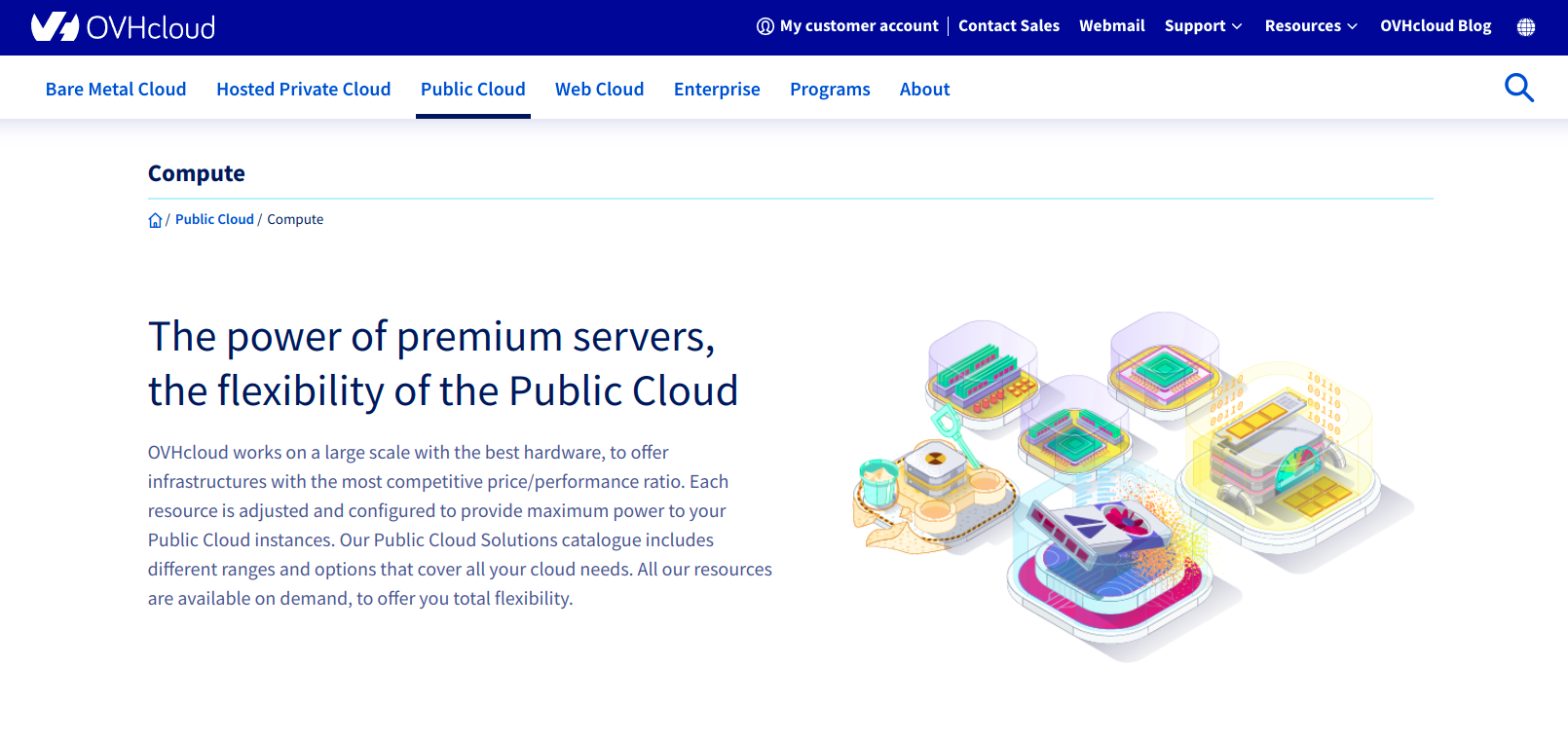
They offer four categories of public cloud instances:
- Discovery: cheapest of all, comes with shared resources
- Guaranteed Resources: Three categories within that: normal, CPU-optimized and RAM-optimized
- GPU: offers NVIDIA Tesla GPUs
- IOPS: offers NVMe SSD disks
As a European company, OVHcloud has multiple data centers in France, other European countries, Canada, and Australia.
Conclusion
I hope this post helped you to meet some of the best alternatives to AWS. Let me conclude it:
- For individual developers and small teams, an uncomplicated platform like DigitalOcean, Linode, Vultr, and UpCloud are great choices. OVHcloud also offers some great plans and location choices, especially if you are in Europe.
- Otherwise, if you are looking for a true enterprise-grade alternative, then Google Cloud and Microsoft Azure are the most popular ones. IBM Cloud, Oracle Cloud stand slightly behind. Finally, Alibaba Cloud is also worth mentioning as it offers most locations in the Asian region.


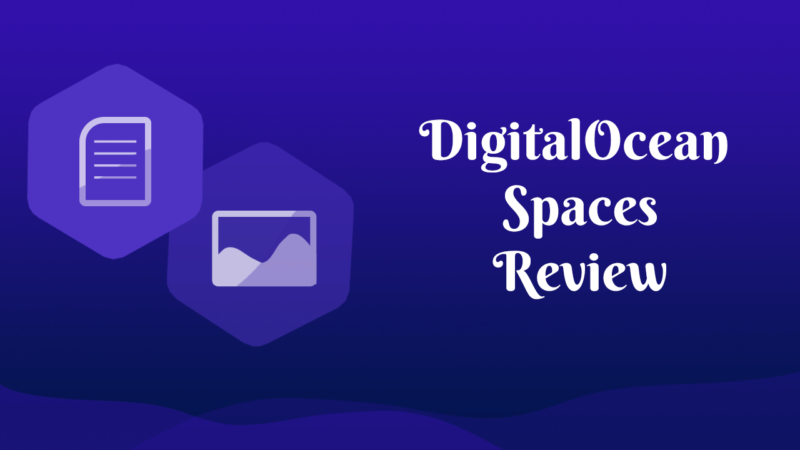
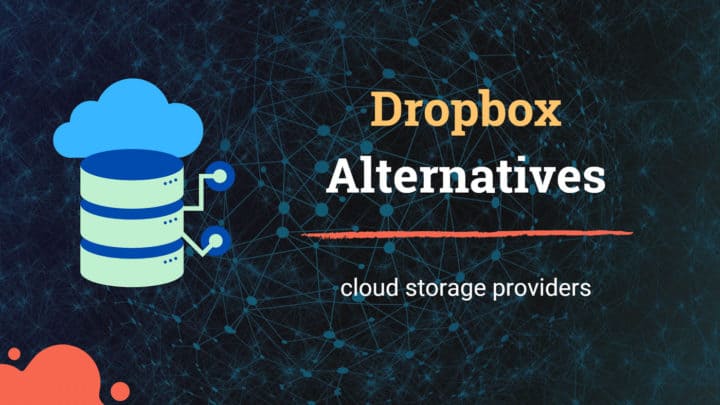
![5 Best Video Hosting Sites [for Businesses & Educators]](https://cdn-2.coralnodes.com/coralnodes/uploads/medium/2021/10/video-hosting-sites-featured-1.jpg)
